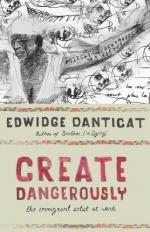|
This section contains 6,689 words (approx. 23 pages at 300 words per page) |

|
SOURCE: Davidson, Rob. “Racial Stock and 8-Rocks: Communal Historiography in Toni Morrison's Paradise.” Twentieth-Century Literature 47, no. 3 (fall 2001): 355-73.
In the following essay, Davidson examines the role of narrative as a means of constituting community identity in Morrison's Paradise.
There is no document of civilization which is not at the same time a document of barbarism.
—Walter Benjamin (258)
With the publication of Paradise in 1998, Toni Morrison completed a trilogy of historical novels that began with Beloved (1987) and Jazz (1992). Broadly speaking, Morrison's trilogy is concerned with “re-membering” the historical past for herself, for African Americans, and for America as a whole: Beloved reconsiders the periods of Emancipation and Reconstruction. Jazz reconsiders the Harlem Renaissance, and Paradise is principally concerned with the Vietnam and civil rights era of the 1960s and 1970s.
One of the most important concerns in the trilogy is the “use value” of narrative. Storytelling is historiography in...
|
This section contains 6,689 words (approx. 23 pages at 300 words per page) |

|


